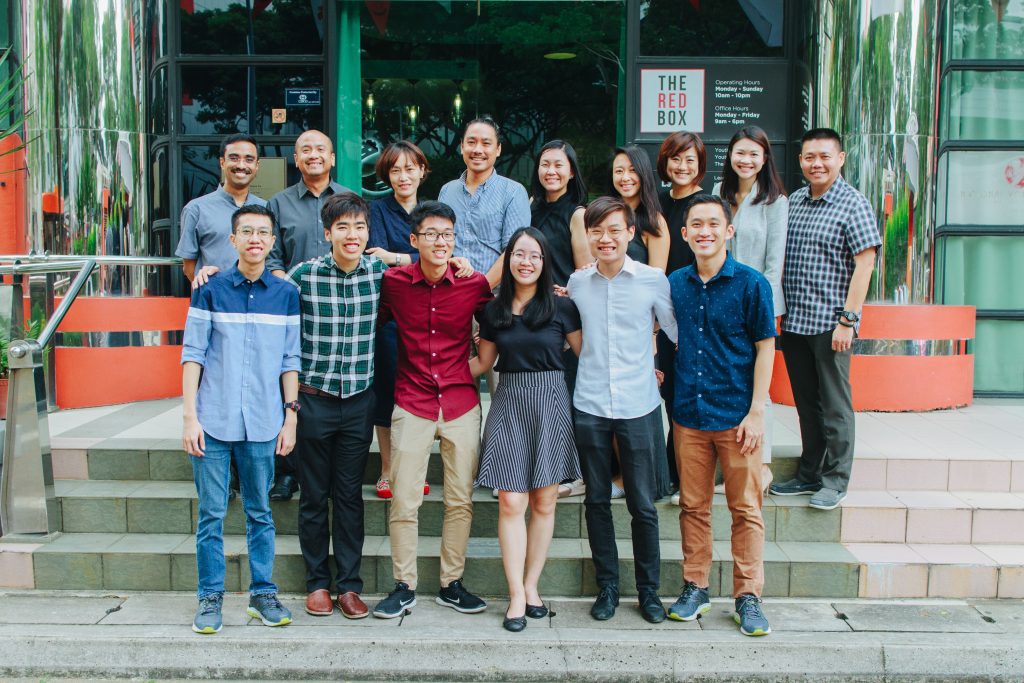
Do you think it is possible to have a future where youths have equal access and are empowered to make informed decisions about their futures?
Advisory certainly believes so.
Advisory is a youth-led non-profit based in Singapore, dedicated to empowering young Singaporeans to make informed career and further education choices. By breaking down the barriers that young people face in finding out about occupations and industries, Advisory seeks to level the playing field and ensure that young Singaporeans can get the support they need to pursue their aspirations, regardless of their family background, schooling history, or socio-economic circumstances.
Bringing together communities for a common cause
Advisory works with various communities guided by the mission to connect students with the working world and provide them with a personal and in-depth understanding of the jobs and industries available.
Since its founding in 2016, Advisory has been driven by several pro bono communities including the Advisory Correspondent Corps, made up of volunteer student correspondents who conduct interviews with working professionals. Together, these volunteers have produced over 170 articles in Advisory’s online repository, which has thus far been viewed more than 333,000 times by over 142,000 users. These articles fall under three main categories: the Conversations series (interviews with young professionals on daily working life experiences and transitioning from school to work), the Reflections series (interviews with industry veterans and senior professionals on the values and outlooks these distinguished individuals hold), as well as the Insights series (think pieces communicating major economic trends, industry terms, and event summaries to students).
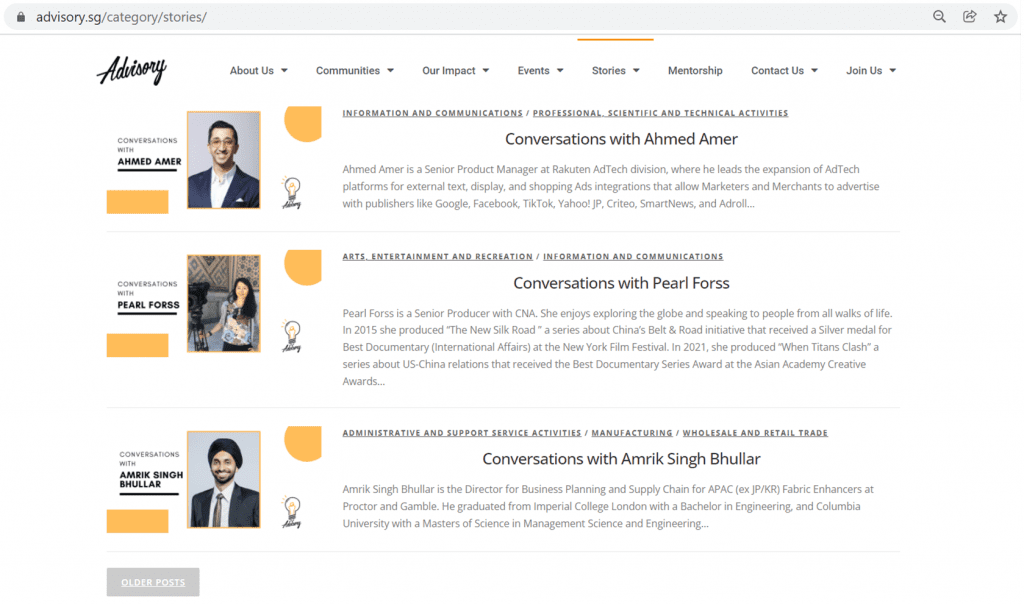
Advisory has since brought together ancillary communities to develop their work further. These include:
- Advisory Professionals Network (ProNet):
- A community of more than 2900 young and senior professionals who volunteer as interviewees, mentors, and speakers for Advisory’s initiatives. Members also gain exclusive access to quarterly engagement evenings that bring the community together and add value to members, with speakers including Minister Grace Fu.
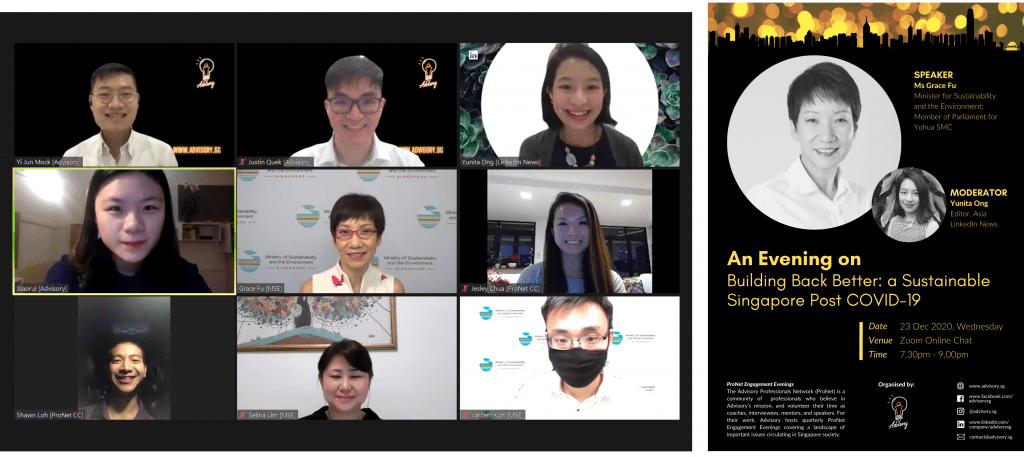
- Advisory Educators Roundtable (EduR):
- A platform and support structure for more than 100 teachers, Education and Career Guidance (ECG) counsellors, and professionals working in student development. Members are invited to biannual meetings comprising industry panels, student sharings, focus group discussions, and more. They also receive priority year-round communication and assistance in developing their ECG initiatives. This community is supported by the NUS Centre for Future-ready Graduates.
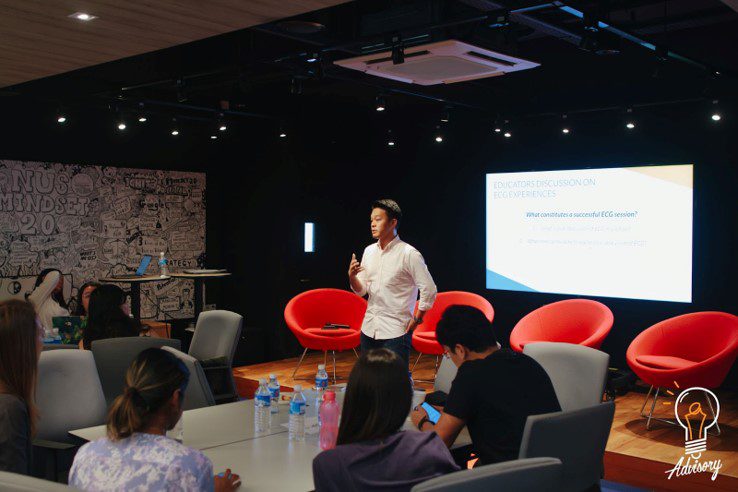
Three factors for a successful community
Mock Yi Jun, Advisory’s Co-Founder and President, shares that the process of forming and working with these communities is guided by a few core principles.
Firstly, there needs to be a clear purpose in the work these individuals volunteer for. This purpose acts as a driving force, encouraging members to not only stay, but also be active contributors to a cause that they care for and are motivated to work towards. Advisory’s thesis, Yi Jun shares, is that working professionals want to pay it forward and do good – but they want to ensure that their time is going towards impactful efforts. Communicating clear requests to volunteers is essential for getting them involved.
Secondly, proper communication channels and efficient time management are two key considerations. No one likes having their time wasted. Advisory emphasises streamlining processes and tailoring the community journey to the needs of its members. For example, the administrative work for new ProNet members is kept to a minimum, with all information compiled in a concise manner during the onboarding process. Mentorship briefings are kept short and sweet, and comprehensive manuals are created for volunteers who may have varying degrees of experience.
Thirdly, it is important to create differentiated avenues for individuals to contribute in the ways and with the time they have available. Some people are only able to give an hour a month and are more keen on playing a specific role (i.e. mentoring students). Others may be willing to give as much as ten hours a month and don’t particularly mind how they are deployed. Taking time to understand different aspirations enables you to create more targeted and effective opportunities for the community to contribute in an optimal manner.
By applying these principles, Advisory’s ProNet expanded over fifty-fold from roughly 60 members in December 2019.
Summarising these points in shaping how Advisory works with others, Yi Jun notes that “In many ways, we are a customer service organisation. We are here to serve students – and we are here to serve the volunteers who make this work possible.”
Keep the individual in mind
Understanding the needs of new potential members also means understanding what fuels those needs. Simply put, it’s about knowing the intrinsic motivations of people. By doing so, Advisory can harness the power of their communities towards their mission.
To clarify the value proposition that Advisory is able to provide to the members of their ancillary communities, the team regularly holds candid focus group discussions to hear about the motivations of their volunteers. By addressing practical considerations, Advisory is able to provide a clear value proposition that directly addresses the interests of its members, including their desire to network with and learn from other professionals in the field.
For example, in addition to volunteering their time as mentors, ProNet members also enjoy networking opportunities that allow them to interact with fellow professionals from across a range of industries, roles, and seniority. Such opportunities add value to the experiences of its working professionals, even as they contribute to youth development. All of these engagement mechanisms dovetail with one another to maintain a strong sense of belonging among its members.
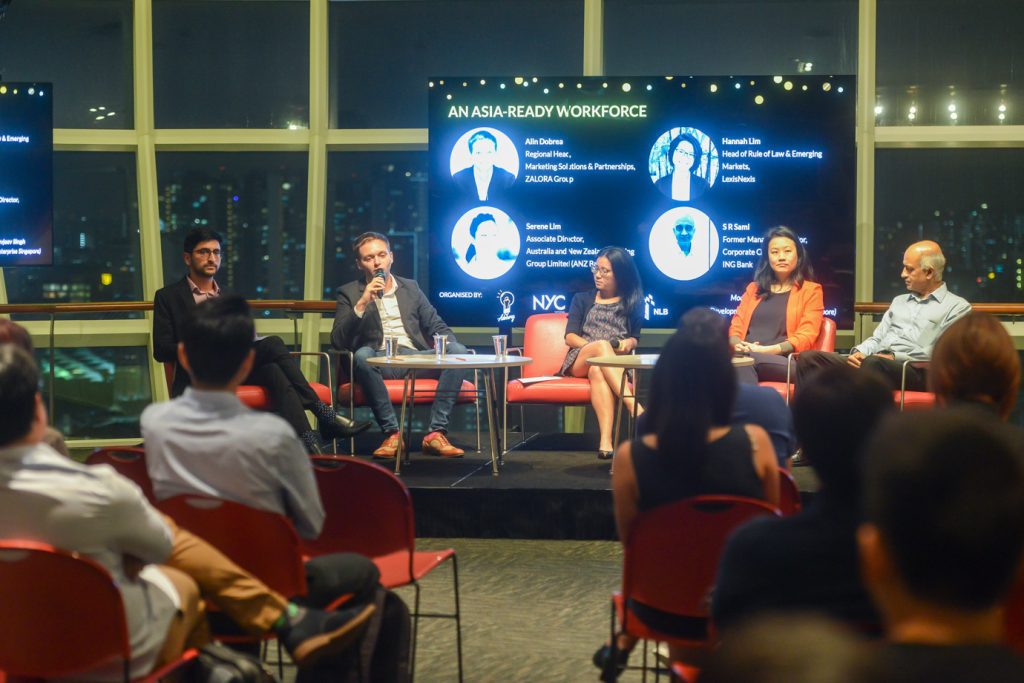
Advisory also takes into account the years of experience that each ProNet member has, in determining the best ways they could contribute. For example, industry veterans will have the most experience and are able to provide advice on more conceptual topics such as managing work-life balance. Young professionals can best share their experiences starting out in the workforce and navigating the transition from school to work.
Therefore, in acknowledging the ability of all to contribute while tailoring opportunities and offering the right incentives, Advisory builds an environment conducive for these professionals to support youths, no matter their level of experience.
Trust: The Key Ingredient for Working with Others
When considering how to best collaborate with external partners, Advisory highlights trust-building as a key strategy to do so. For example, Advisory has an open phone policy, where members are able to call anyone in the Advisory team for help and there will always be someone to answer – no matter the time or location. With one-third of its members based abroad, Advisory finds open communication and feedback essential to keeping its work moving.
Additionally, each ancillary community is led by a group of Co-Chairs, distinguished professionals selected from among the ProNet and EduR respectively. These Co-Chairs act as Advisory’s eyes and ears on the ground, serving as a touchpoint for informal feedback from members whilst also contributing their perspectives as members of the respective communities. This helps to ensure that feedback is not only heard, but also brought up and acted upon in a timely manner.
Establishing themselves as a trusted organisation entails more than just building external relationships. “The best thing for building that trust is having people on our team who we trust,” says Yi Jun. Advisory’s senior leadership team ensures they get to know every mentor, sending them personal messages and making themselves easily available to any requests or queries by mentors.
“As they say,” Yi Jun shares, “trust is hard-won and easily lost. Trust is the currency of the realm, and we make earning the trust of our volunteers a core organisational priority.” By ensuring internal processes are responsive and able to address the needs and concerns of members, along with accessible feedback channels, Advisory is able to form a strong foundation of trust with the communities they work with.
Shaping the future
Advisory has created an encouraging environment where individuals who want to help can be provided with effective avenues/platforms to do so. By positioning these ancillary communities at the forefront of the cause, the benefits are also passed onto the youths, in line with Advisory’s mission and vision. “In doing so,” Yi Jun concludes, “our volunteers trust us when we request their help. Because they know we’ve thought it through, and we would only put in front of them avenues through which they are able to do their best work.”
Yet, as Yi Jun notes, “Our work is never done; there will never be a situation where we can cover all students”.
With its sights on the future, expansion plans are underway as Advisory looks to work with every post-secondary educational institution in Singapore by 2025.
By considering not only the needs of the people they serve but also that of the communities that support them in their goals, Advisory may just be able to transform how career guidance is delivered.
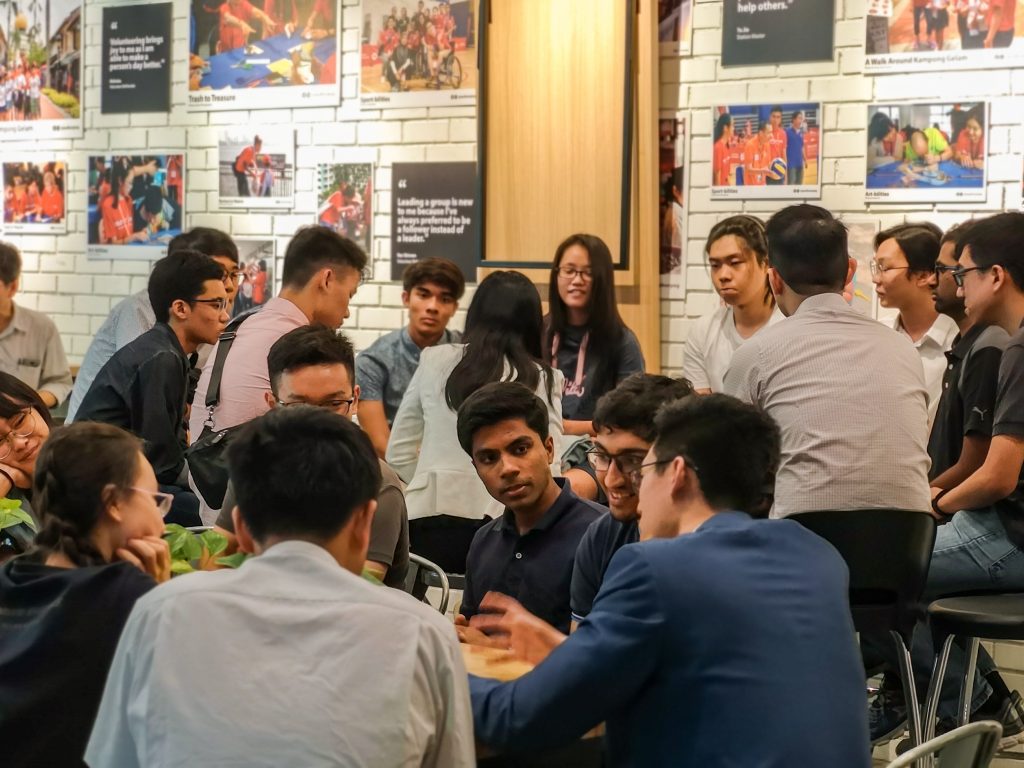
If you would like to find out more about Advisory’s work and ways you could contribute, do feel free to drop them an email at [email protected]. From hosting virtual company visits to speaking on industry panels — the team would be happy to explore opportunities where you could play a part in shaping and inspiring the lives of young Singaporeans.
If you’re a working professional or educator looking to join Advisory’s communities – head on over to advisory.sg/working-professionals or advisory.sg/educators.
Reflection Questions
- What are the key considerations your community has when working with other partners or external communities?
- How does your community build trust within and beyond yourselves?
- What are possible avenues of collaboration with other communities?





















